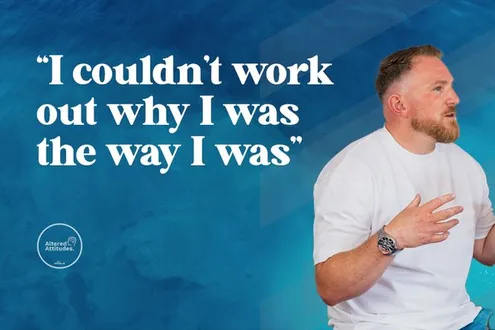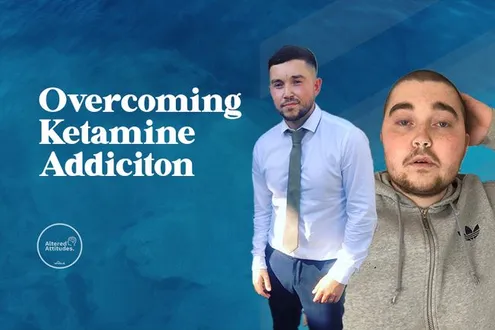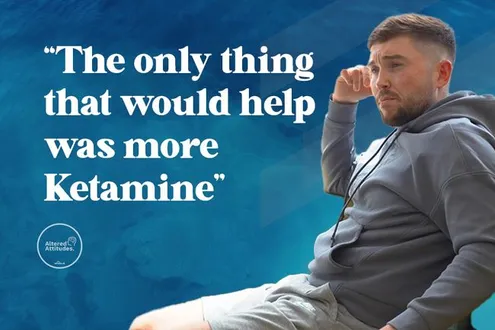Prescription drugs are medications that require a prescription from a licensed healthcare professional, such as a doctor or nurse practitioner, to obtain. These drugs are typically more potent or potentially dangerous than over-the-counter medications and require supervision by a healthcare provider to ensure proper use, dosage, and monitoring for potential side effects or interactions with other medications.
There are several commonly abused prescription drugs.
Prescription benzodiazepines - Benzodiazepines, also known as ‘benzos’, ‘sedatives’ and ‘tranquilisers’, are a widely-abused classification of prescription medication. These types of prescription drugs are often prescribed for anxiety, seizures and certain other psychiatric and medical conditions.
Some types of benzodiazepines include:
- Diazepam (such as Valium)
- Chlordiazepoxide (such as Librium)
- Alprazolam (such as Xanax)
- Zolpidem (such as Ambien)
- Lorazapam (such as Ativan)
These types of drugs are known to create a sense of calm to the individual making them seem relaxed. This feeling can quickly become addictive and there are common signs of Benzodiazepine addiction to look out for.
Prescription opioids – These are typically the most commonly misused prescription drugs. They have very strong painkilling properties. The aim of these types of drugs is to numb pain but they also can create a sense of euphoria. Opioids have an addictive nature and by creating this relaxing feeling can become addictive quickly.
Opioids may be prescribed if someone is experiencing moderate pain from a chronic condition, injury or surgery. With reports across the world highlighting the increase of opioid addiction from prescription medication there are questions whether there is a growing opioid epidemic in the UK.
Some types of opioids include:
If you have spotted signs of painkiller addiction in a loved one please do not hesitate to contact one of Treatment Advisors for advice.
Prescription stimulants – This type of prescription drug is usually prescribed to treat conditions such as attention deficit hyperactivity disorder (ADHA) and narcolepsy which is uncontrollable episodes of deep sleep. They are used to increase energy, attention and alertness by increasing dopamine in the brain. Dopamine is linked to pleasure in the brain which means that this drug can become highly addictive.
Types of prescription stimulants include:
- Methylphenidate (such as Concerta, Ritalin)
- Dextroamphetamine (Adderall, Dexedrine)

Many people abuse prescription drugs without realising it. Even though they are prescribed by a doctor, taking a larger dose of a prescription medication than is advised by a doctor is abuse. Many people do this automatically if they notice they are not getting the same level of relief from the drug that they did at first. Increasing your dose of can often lead to tolerance and dependence, and drug abuse can lead to addiction.
If prescription drugs are starting to interfere with daily life and is making it difficult to handle usual responsibilities at work and at home, you may have a problem. Continuing to use prescription drugs despite being aware of the harm it is causing signifies an addiction.
PHE’s analysis shows that, in 2017 to 2018, 11.5 million adults in England (26% of the adult population) received, and had dispensed, one or more prescriptions for any of the medicines within the scope of the review. The totals for each medicine were:
- antidepressants 7.3 million people (17% of the adult population)
- opioid pain medicines 5.6 million (13%)
- gabapentinoids 1.5 million (3%)
- benzodiazepines 1.4 million (3%)
- z-drugs 1.0 million (2%)
Environmental factors
A prescription to treat any sort of issue such as anxiety or pain can quickly lead to an individual becoming tolerant of the drug and later addicted as the user relies on it to feel better.
Psychological Factors
Those taking prescription drugs for stress or to help them sleep may soon feel that they cannot feel ‘normal’ without it, so keep taking it in higher doses as their tolerance builds. These are just a few challenges of painkiller dependency.
Genetic predisposition
A family history of drug abuse and/or addiction, as well as mental health disorders are factors that increase the chances of someone developing an addiction.
Changes in Brain Chemistry
These type of substances affect the chemical balance and neurotransmitters in the brain, which means users can feel unwell and suffer withdrawal symptoms from prescription medication unless use is tapered off slowly (titrated) or they are detoxed from the substance.
If you are concerned about a loved one contact one of our Treatment Advisors today for a free assessment.

When someone becomes addicted to a prescription drug they may start to lose the ability to control how much of the drug they are taking it and how often they take it. For example they may be taking more than what has been prescribed, abusing the medication or looking to source additional quantities of that specific drug. This can cause the addiction to develop over time and have an increasingly detrimental impact on their wellbeing, health and quality of life. They may even go to great lengths to conceal their prescription drug dependency.
If you or a loved one is struggling to take a medication as prescribed or have noticed an increase in tolerance then it's important to seek professional guidance.









